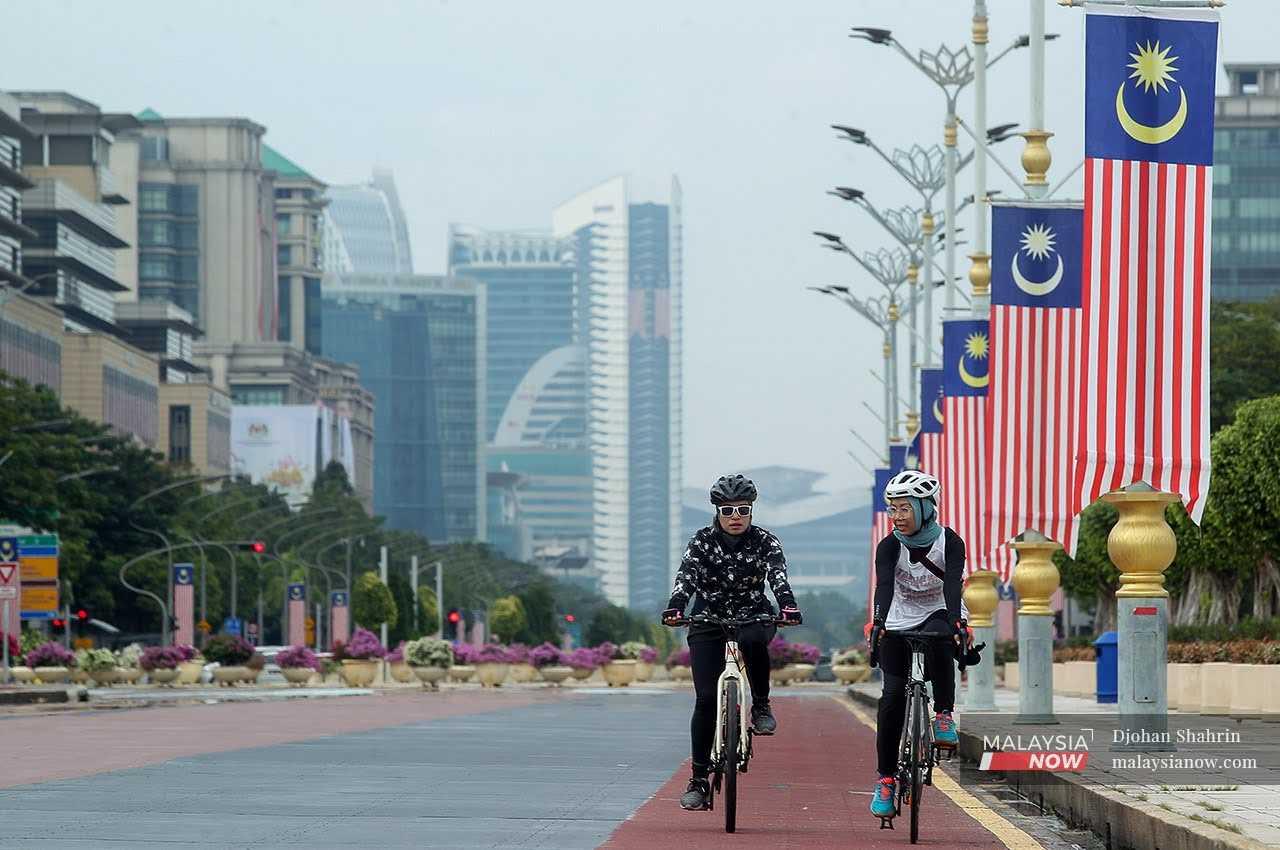Putrajaya residents hope for new faces at polls
They say the same person has represented them for the past 18 years.
Just In
At a food court in Presint 8, Putrajaya, the atmosphere is loud and lively as customers move from stall to stall, deciding what they want for lunch today.
Most of them are civil servants from ministries, departments and government agencies.
Such clientele are the norm in Putrajaya, construction of which began in April 1995 to replace Kuala Lumpur as the country's administrative centre.
On May 10, 1999, the Putra Perdana complex which houses the Prime Minister's Office commenced operations, and in 2003, a parliamentary constituency was introduced for Putrajaya.
The first time it was contested as a federal seat was at the 11th general election in 2004.
Mohd Syamsur, a government retiree, remembers casting his vote in Putrajaya for the first time at the following general election in 2008.
Prior to that, he had always voted in Kuala Terengganu on the east coast. But in 2005, he was transferred to government official quarters, and after their retirement, he and his wife decided to stay on in Putrajaya.
Speaking to MalaysiaNow, he said many of his friends had considered Putrajaya the home of the rich and elite.
But this was not so, he said.
"Most of the people who live and work here are low-grade civil servants," he said. "Not many are from the upper-class groups."
And the cost of living, according to him, has not changed by much since he moved to the area.
"Ask anyone you like how cheap it is to live here," he said.
Anyway, Syamsur said, the cost of living was not the biggest problem for those living in Putrajaya.
For many years – 18, to be exact, or four terms – the same person had won the Putrajaya seat, he said.
He was referring to Umno treasurer Tengku Adnan Tengku Mansor, who has held the Putrajaya seat since March 24, 2004.
'Civil service mentality'
For Syamsur, part of the problem is the mentality of civil servants which he said needs to change, at least regarding election candidates.
Every time an election is called, he said, the voting pattern is the same: voters choose the candidate who represents the political party from the ruling government.
"It doesn't matter whether the candidate's background is suitable or not," he added.
"Some of them never even meet the candidate whom they choose and get to know the person. The mentality is: I work for the government, so I have to choose someone from the ruling party.
"That is the problem."
To be sure, Syamsur said, there was nothing wrong with voting along such lines.
But the way he sees it, voters should also take into account the credibility of the candidates who are fielded.
He said voters should also speak up, as they have the right to ask parties to put forward new candidates for the election this time.
"Putrajaya, as the administrative centre, should lead the way in democratic practices as nearly everyone here is a government servant," he said.
"Prove that we are truly a democratic country, and get rid of that outdated mentality. Office work and ballot papers are two separate matters."
As of 2020, a total of 109,202 people were recorded as living in Putrajaya, the overwhelming majority of whom were Malay and Bumiputera.
At GE14, 27,306 individuals were registered to vote in the constituency.
Improvements
An office worker at the education ministry who introduced herself as Fatehah said she hoped whoever won the election would pay attention to two things in particular.
Firstly, she said, the infrastructure in Putrajaya needs improvement.
She said many workers had very limited parking space which made it difficult to go about their daily affairs.
"Even when we go home, we park in lines along the road, far away from our homes.
"It's very difficult for me and for other people who have small children," she said, adding that this was a long-standing issue that had never been addressed.
Fatehah said the limited parking also caused problems with safety and security as cars parked far from owners' homes were frequently broken into or slapped with summonses by the local authorities.
"If there were a dedicated bus service or a good public transportation network, I'm sure many would choose that over driving," she added.
She said representatives should also go to the public markets to check on the prices of kitchen items.
She said these were rarely controlled unless traders were expecting a visit from government representatives.
"There are no small sundry shops here," she said. "Everything is bought at either the supermarket or the public market.
"If there was someone willing to monitor and communicate with the traders, that would be good enough for us.
Subscribe to our newsletter
To be updated with all the latest news and analyses daily.
Related Articles
Most Read
No articles found.
